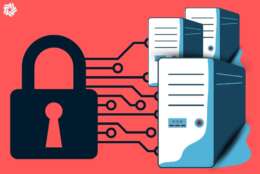Hubbard Radio Washington DC, LLC. All rights reserved. This website is not intended for users located within the European Economic Area.
On Air: Federal News Network
Steven Burke, of the Council of Inspectors General on Integrity and Efficiency, said one of the ways to overcome those challenges is with good business relationships among government customers and external data owners.
Read moreThe Digital Investigations Branch in HHS’ Office of Inspector General has a team of highly skilled digital investigators to collect and analyze electronically stored information to support criminal investigations.
For David Case, deputy inspector general at the Department of Veterans Affairs, investigations are a mix of sifting through documents and machine-generated data, and talking to individuals.
Data is a blessing and a curse, but some entities are using it successfully, and changing their approach.
Among the most ubiquitous of federal agency activities are investigations. The term brings to mind law enforcement agencies, of course, such as the FBI or the IRS criminal division. Thought of more broadly, investigations also include oversight activities by inspectors general or the Government Accountability Office, program examinations by analysts or congressional staffers, and casework by agencies as diverse as the Merit Systems Protection Board or the Equal Employment Opportunity Commission.
The Defense Department’s criminal investigations always had the goal of evidence data, but the traditional methods of investigation are now merging new forms of data analysis. The Naval Criminal Investigation Service (NCIS) sees several changes ahead as a result.
-
Crowdstrike has a lot to teach about routine system maintenance
The recent Crowdstrike outage has shown everything that can go wrong when doing a simple update.
-
OMB’s new FedRAMP policy takes aim at the pain points
Drew Mykelgard, the deputy federal chief information officer at OMB, said the updated FedRAMP policy pushes for more automation, reciprocity.
-
Newest constellation of weather satellites gets flight plan
Space Hour host Eric White spoke to Dylan Powell, Lead Strategist for Weather and Earth Science at Lockheed Martin.
-
Federal security agency struggling with new IT system for tracking contract guards
The IT challenges come as multiple agencies have been forced to close their offices for hours or even a full day due to a shortage of federal security guards.
-
IRS embarks on ‘absolutely critical’ refresh of legacy HR systems
The IRS is managing hundreds of legacy HR IT systems with thousands of workflows, but deferred upgrading these systems when the agency faced budget cuts.
-
Amid political leadership vacancies, calls for SES reform continue to rise
Opting for career SES officials or appointees who don’t need Senate confirmation may be the most effective way to minimize persistent leadership vacancies.
-
CISA executive director to depart after three years
Brandon Wales is the second senior leader to depart CISA in recent months. He led many of CISA’s internal and external initiatives over the last three years.
-
A new NASA experiment shows finding the building blocks for life on other planets may not require much digging
New research from NASA shows that the building blocks of life beyond Earth may not be hard to find were we ever to send a probe to do some digging around.















